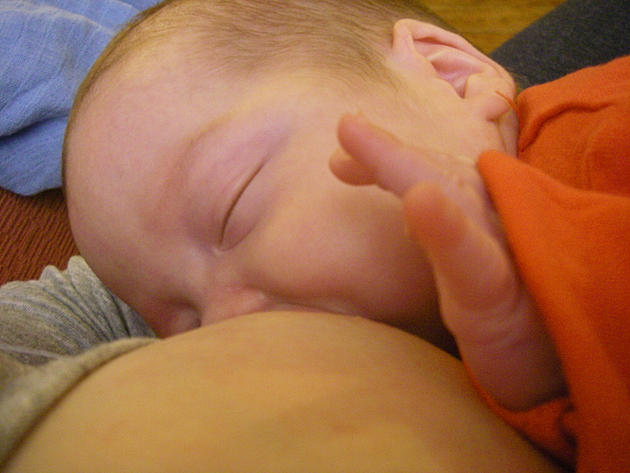How you choose to feed your baby can be one of the most fraught and emotionally charged decisions you will ever make as a parent. Most (81%) of new mums in the UK choose to initiate breastfeeding, but only 1% of UK babies are exclusively breastfed at 6 months old.
The recommendations based on quality information are clear. Babies should be exclusively breastfed until they are 6 months old, with breastfeeding then continuing alongside the introduction of solid foods for as long as mum and baby both want, ideally until at least 2 years
Not breastfeeding exclusively increases the chances that your baby will get ill and be hospitalised for illness. Plus, the longer a mum breastfeeds for, the more her risk of getting breast or ovarian cancer in later life decreases.
Breastfeeding is the physiological norm for human babies, but it doesn't always come naturally. So what can you do to help yourself?
Get your partner on board.
Mums whose partners are fully supportive of their choice to breastfeed are far more likely to successfully establish breastfeeding and achieve their breastfeeding goals. Information for dads/partners:http://kellymom.com/pregnancy/bf-prep/bf-links-father/
Educate yourself and your partner.
Antenatal education about breastfeeding can be absolutely key, because so many new mums in the UK do not grow up seeing breastfeeding and having it as a normal part of their family life. Unhelpful myths about breastfeeding abound and can be found in many parenting books and magazines. You'll need to help to debunk all of that. Many areas have breastfeeding classes available on the NHS, or contact the NCT, the BfN or your local breastfeeding counsellors, lactation consultants or doulas.
Learn about who will be supporting you. A lot of new parents assume that all the healthcare professionals they come in contact with will be knowledgeable about breastfeeding support. Sadly that's not always the case, so learn about the different roles and qualifications in breastfeeding support. A Who's Who of breastfeeding support:http://maddiemcmahon.com/2011/09/11/what-are-your-breastfeeding-helpers-credentials/
Get good support. Stick the number for the National Breastfeeding Helpline, the NCT Helpline and the LLL Helpline to your fridge and make sure your partner knows what they are - and that they can call too! Find your local drop-ins run by trained staff and volunteers - the NCT, BfN and ABM websites are great places to start - go along before baby arrives, get to know the people running the drop-in and find out all you can about local support options, including the local lactation consultants, breastfeeding counsellors and doulas who do private breastfeeding support in your own home.
Consider hiring a doula, either for birth and/or postnatally. Mums who are supported by a doula are far more likely to establish breastfeeding successfully. A birth doula will also help support you antenatally, and may be able to help you have a positive birth experience (always a great way to start your breastfeeding journey!). A postnatal doula will provide flexible emotional and practical support in your home and can be booked before baby arrives. Consider it an investment in your start to parenting!
Lindsey also writes about how 'Breast is not always Best' over at www.newburydoula.co.uk, as well as sharing advice on Post Natal Depression, Birth Plans and more.
Resources:
National Breastfeeding Helpline 0300 100 0212 Association of Breastfeeding Mothers (ABM): Breastfeeding Network (BfN) Doula UK NCT
Thank you to Jennie at Edspire.co.uk for allowing us to use her photograph above. You can follow her breastfeeding journey here.



No comments:
Post a Comment